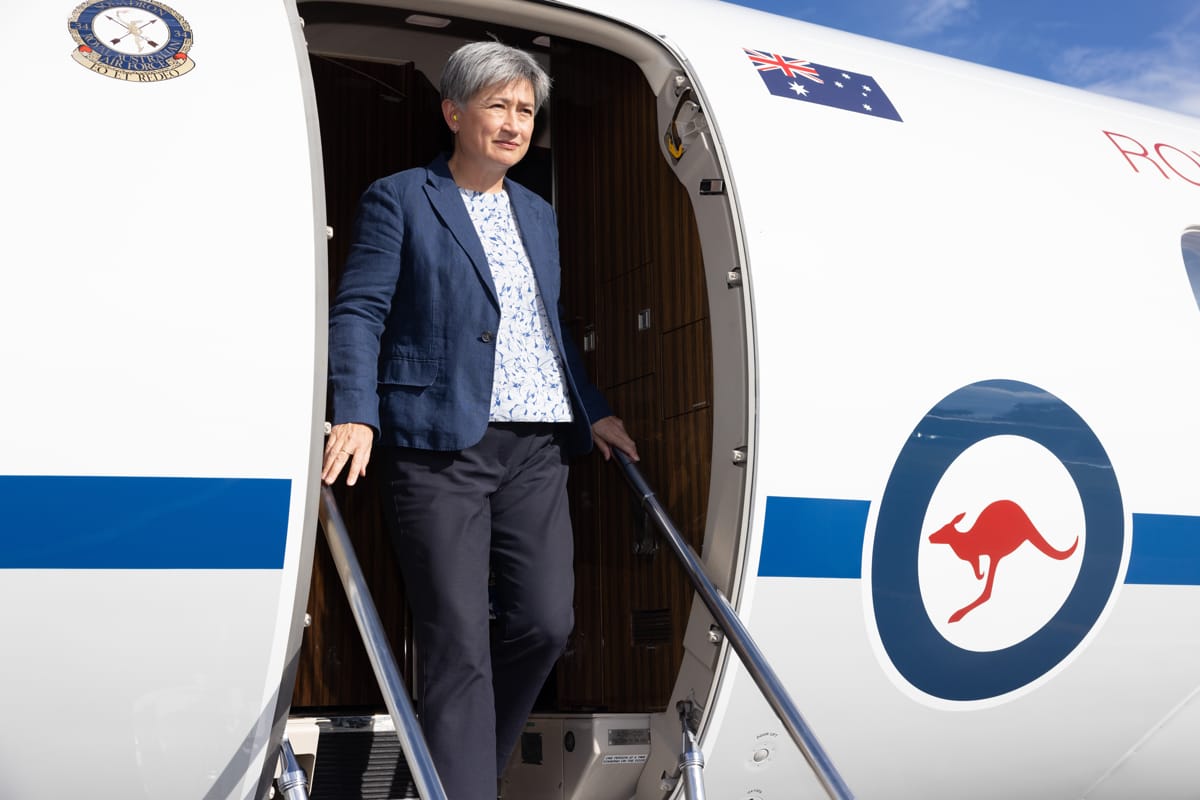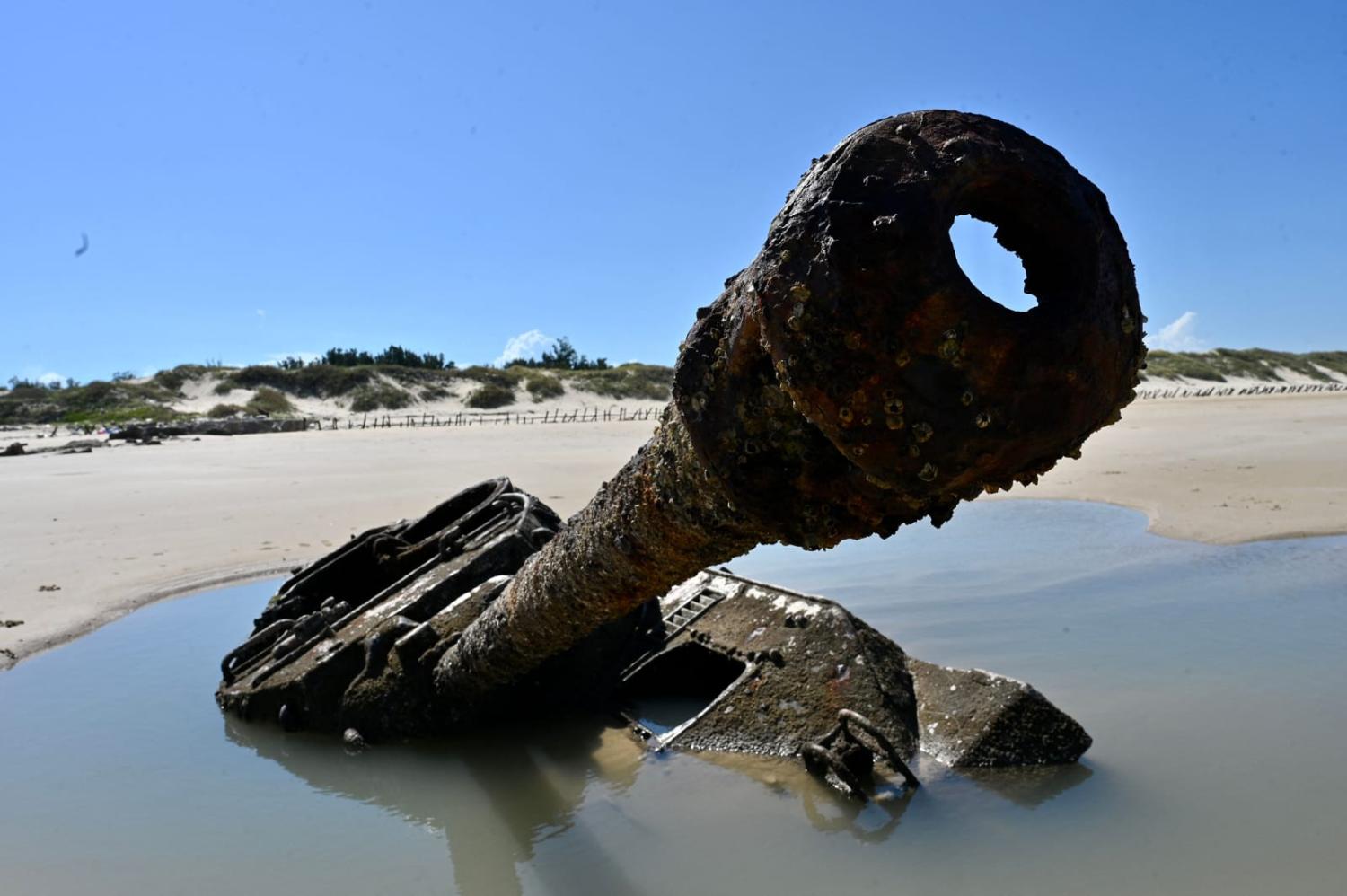Speaking at the Press Club in Canberra last week, Foreign Minister Penny Wong dismissed discussion about war over Taiwan as “dangerous … parlour games”. It was an odd thing to say. Wong declared that the risk is real, and the consequences would be “catastrophic”, but she decried any serious debate about its causes or how we should respond to it. This the same person who said back in 2019 that the “‘trust us we know what we are doing’ … approach no longer works in foreign policy.”
And indeed, it’s far from clear that the Australian government does know what it is doing on Taiwan.
The little Wong did say about Taiwan last week revealed two serious flaws in her policy. The first arises from her commitment to preserving the status quo. Wong told the Press Club that “maintaining the status quo is comprehensively superior to any alternative … it is the proposition most capable of averting conflict and enabling the region to live in peace and prosperity.”
Most would agree that preserving the status quo is now the best way to protect Taiwan’s democracy. But Wong said it was the best path to peace and prosperity for the whole region, and that is a very different proposition. That is because of the brute fact of China’s determination that the status quo will not stand. We may wish this were not so, but we cannot wish it away. As Wong herself once said, “to construct the world we wish to live in, we begin with the world as it is,” and “we accept China as it is.”
The world Wong wishes to live in, as she explained it to the Press Club, is one in which Asia is peaceful and prosperous because China accepts and even embraces a substantial US strategic role in Asia as a balancing power in a multipolar order. But China will never accept a continuing US role in our region as long as America is dedicated to upholding the status quo over Taiwan that China is determined to overthrow. Unless China changes its mind, which there is absolutely no reason to expect, preserving the status quo over Taiwan ensures we will not see the kind of peaceful new order in Asia that Wong seeks.

So given “the world as it is”, and “China as it is”, Australia faces a choice. We can commit to supporting the Taiwan status quo, or we can work to sustain a strong US role in a new, stable multipolar order in Asia, but we cannot do both. That is a hard choice, which reflects the reality that the Taiwan issue is not just about Taiwan. It is about the whole future of the regional strategic order. Our concerns about protecting Taiwan’s democracy must be balanced against our interests in maintaining peace and restoring stability in Asia. These are among the most difficult and important foreign policy questions we have ever faced. Debating them is not a parlour game.
The second flaw in Wong’s policy concerns her commitment to deterrence. Maintaining the status quo over Taiwan, she told the Press Club, will require “both reassurance and deterrence”. Elsewhere in the speech she referred repeatedly to the centrality of deterrence, and Australia’s contribution to it, to creating the kind of region she seeks.
It is important to be clear about what all this talk of “deterrence” means. It means Australia, along with others, should threaten to go to war with China in order to compel it to abandon its ambitions to “retake” Taiwan and establish primacy over East Asia. And yet Wong is under no illusions about what that war would mean. “Let me be absolutely clear,” she told the Press Club. “A war over Taiwan would be catastrophic for all. We know that there would be no real winners.”
So here is the contradiction. If Australia is to contribute to a policy of deterrence towards China, we must convince Beijing that we are willing to go to war. And yet Wong seems to think that going to war with China would be a huge mistake. That makes Australia’s deterrent threats look frankly incredible.
If Wong is serious about helping to deter China, she must be willing to say, quite explicitly, that there are some circumstances, at least, in which Australia would be willing to join this catastrophic war. Otherwise, her talk of deterrence means nothing. And she cannot duck this by claiming, as she has done before, the need to conform to America’s policy of “strategic ambiguity”. US President Joe Biden has shown her the way here.
But if Wong is to tell the world that Australia would be willing to fight a war that would have “no real winners”, she really must be willing to explain to Australians why. She needs to explain, and debate, why she thinks the costs and risks of fighting a catastrophic war would be less appalling than the consequences of not fighting it. That won’t be a parlour game, either.

